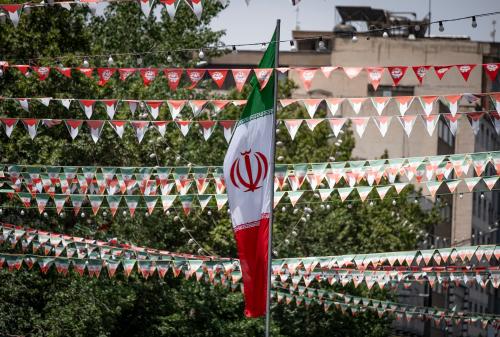INTRODUCTION
Since September, the new French government has been hard at work on a White Paper on Defense. The report, due in April, will set the direction of French security policy for the next decade. It will also indicate the security and foreign policy priorities of the Sarkozy administration – priorities that so far have been somewhat hard to discern.
The last French White Paper was issued in 1994, and it is widely agreed that a new one is needed. The 1994 paper only partially restructured the French military from its Cold War format. Though some steps have been taken to reorient French conventional forces away from Continental war and toward an overseas projection, France’s military equipment and capabilities remain the product of decisions made in the 1980s and even 1970s – decisions that reflect both the traditional Gaullist strategy of independence through nuclear deterrence and the assumption of a regular, symmetric enemy.
Two majors concerns will shape the forthcoming White Paper. First, the global strategic environment has grown more and more unpredictable since the early 1990s, thus further complicating force planning. On one level, there has been a shift from the need to plan for a “virtual” total war in Europe to the need to fight real yet far more limited wars, often far afield. This shift alone makes change mandatory. On another level, today’s limited wars come in a wide variety of forms, from asymmetric wars like Iraq and Afghanistan to hi-tech, coercive operations like NATO’s air campaign against Serbia in 1999. It is difficult to prepare for all forms at once.
Second, French policymakers are working within the confines of a limited and possibly shrinking budget. Currently, France spends 2.5 % of its GDP on defense (1.7 % with pensions and gendarmerie excluded). This compares favorably with the non-U.S. NATO level of 1.74 percent, but is still substantially less than U.S. spending, which has now topped four percent of GDP.1 The European Stability and Growth Pact, which limits Europe’s budget deficits, means France’s defense spending can only rise at the expense of other French budgetary priorities or through an increase in taxes – neither of which seem likely. Meanwhile, today’s gloomy economic prospects offer little hope for a significant increase in absolute levels of defense spending. Finally, the postponement of some hefty defense bills over the last 15 years has created a mounting financial bump that will need to be addressed down the road.2
Tradeoffs, therefore, will be necessary, and difficult choices will need to be made. Although deliberations in Paris are ongoing and the outcome of the White Paper is uncertain, the main strategic choices France faces and their ramifications for French allies are already fairly clear.
The Brookings Institution is committed to quality, independence, and impact.
We are supported by a diverse array of funders. In line with our values and policies, each Brookings publication represents the sole views of its author(s).



